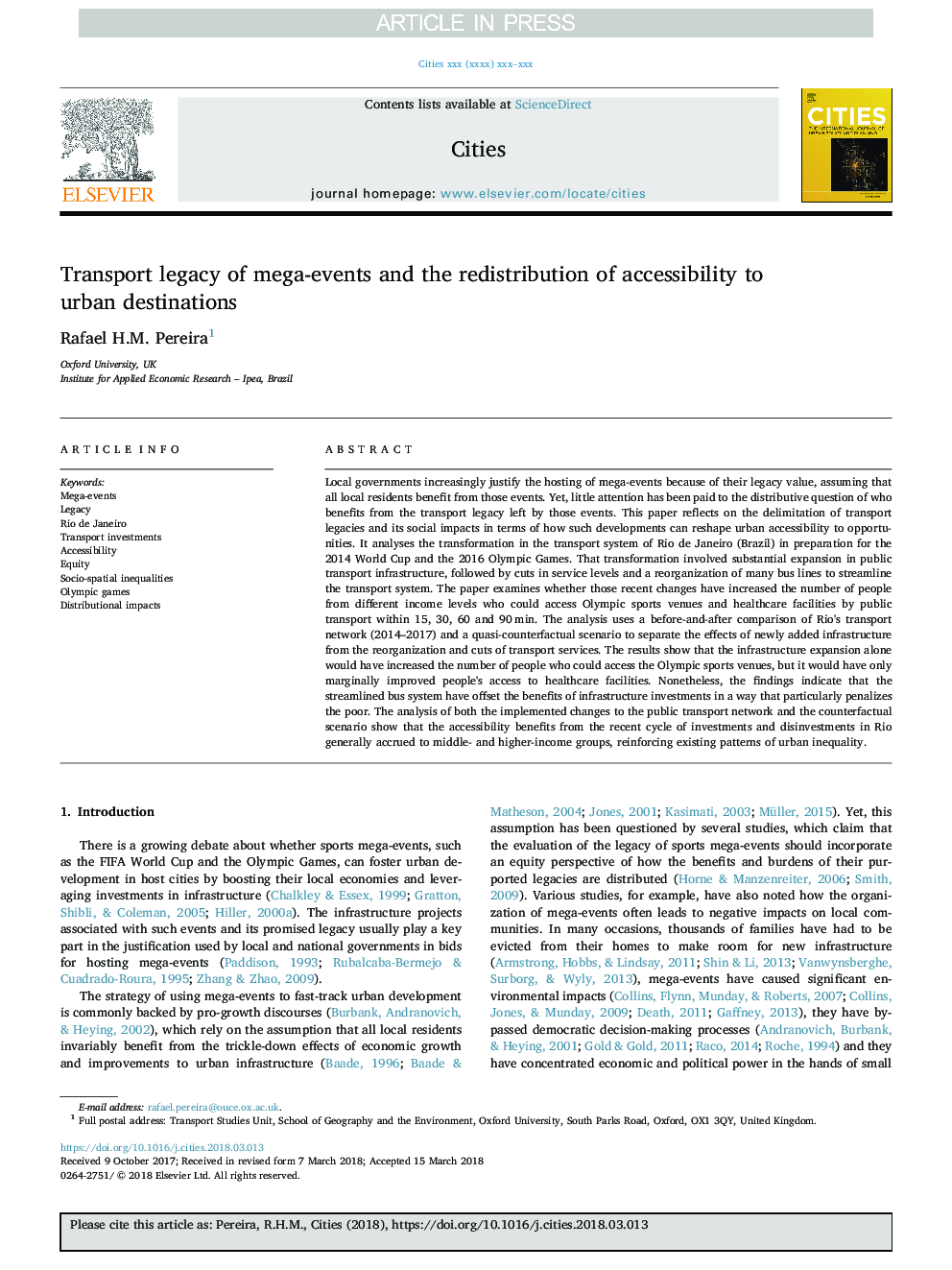| کد مقاله | کد نشریه | سال انتشار | مقاله انگلیسی | نسخه تمام متن |
|---|---|---|---|---|
| 8954655 | 1646031 | 2018 | 16 صفحه PDF | دانلود رایگان |
عنوان انگلیسی مقاله ISI
Transport legacy of mega-events and the redistribution of accessibility to urban destinations
ترجمه فارسی عنوان
میراث حمل و نقل از رویدادهای بزرگ و توزیع مجدد دسترسی به مقصد های شهری
دانلود مقاله + سفارش ترجمه
دانلود مقاله ISI انگلیسی
رایگان برای ایرانیان
کلمات کلیدی
رویدادهای مگا میراث ریودوژانیرو، سرمایه گذاری های حمل و نقل، دسترسی، انصاف، نابرابری اجتماعی و فضایی، بازی های المپیک، تاثیرات توزیعی،
موضوعات مرتبط
علوم انسانی و اجتماعی
مدیریت، کسب و کار و حسابداری
گردشگری، اوقات فراغت و مدیریت هتلداری
چکیده انگلیسی
Local governments increasingly justify the hosting of mega-events because of their legacy value, assuming that all local residents benefit from those events. Yet, little attention has been paid to the distributive question of who benefits from the transport legacy left by those events. This paper reflects on the delimitation of transport legacies and its social impacts in terms of how such developments can reshape urban accessibility to opportunities. It analyses the transformation in the transport system of Rio de Janeiro (Brazil) in preparation for the 2014 World Cup and the 2016 Olympic Games. That transformation involved substantial expansion in public transport infrastructure, followed by cuts in service levels and a reorganization of many bus lines to streamline the transport system. The paper examines whether those recent changes have increased the number of people from different income levels who could access Olympic sports venues and healthcare facilities by public transport within 15, 30, 60 and 90â¯min. The analysis uses a before-and-after comparison of Rio's transport network (2014-2017) and a quasi-counterfactual scenario to separate the effects of newly added infrastructure from the reorganization and cuts of transport services. The results show that the infrastructure expansion alone would have increased the number of people who could access the Olympic sports venues, but it would have only marginally improved people's access to healthcare facilities. Nonetheless, the findings indicate that the streamlined bus system have offset the benefits of infrastructure investments in a way that particularly penalizes the poor. The analysis of both the implemented changes to the public transport network and the counterfactual scenario show that the accessibility benefits from the recent cycle of investments and disinvestments in Rio generally accrued to middle- and higher-income groups, reinforcing existing patterns of urban inequality.
ناشر
Database: Elsevier - ScienceDirect (ساینس دایرکت)
Journal: Cities - Volume 81, November 2018, Pages 45-60
Journal: Cities - Volume 81, November 2018, Pages 45-60
نویسندگان
Rafael H.M. Pereira,
